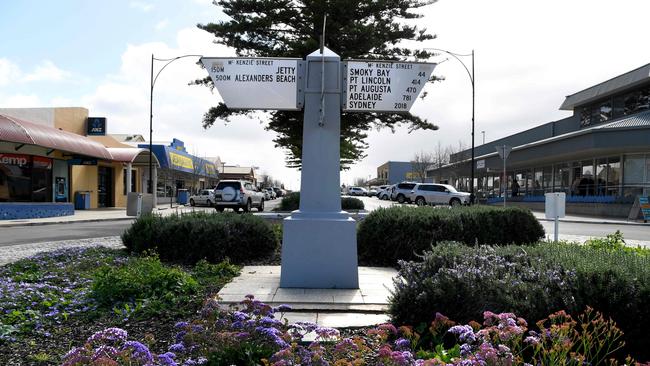Cashless card stacks up on grog
An assessment of the Cashless Debit Card for Australian welfare recipients has found ‘consistent and clear evidence’ of reduced alcohol consumption and a fall in gambling.

An assessment of the Cashless Debit Card for Australian welfare recipients has found “consistent and clear evidence” of reduced alcohol consumption and a fall in gambling at three trial sites.
The Future of Employment and Skills Research Centre at the University of Adelaide based its report primarily but not exclusively on what Cashless Debit Card participants told them at the trial sites in the Kimberley in Western Australia’s far north, in the goldfields of WA and at Ceduna and surrounds in South Australia.
At those three locations, the card is involuntary for 5716 people under 65 years old. An average 61 per cent of participants are Indigenous at those three locations.
Each fortnight, 80 per cent of participants’ welfare payments are assigned to a purpose-built debit card that cannot withdraw cash and does not work at bottle shops or betting businesses.
“A core question regarding every public policy is whether the policy works well or not and whether the changes it brings were the intended changes or not,” the researchers wrote. “The answer to this question regarding the CDC is not straightforward.
“We found consistent and clear evidence that alcohol consumption has reduced since the introduction of the CDC in the trial sites,” the report reads.
“With the current evidence, it is not possible to attribute these changes to the CDC alone. Reductions can be attributed, however, to the full complement of all policies in force at the time of the CDC introduction in the trial areas, not just to the CDC.”
The report states the Cashless Debit Card “appeared to be reducing the number of days that drinking takes place and the amount consumed in each one of these days”. Asked to name the most problematic substance in their community, non-Indigenous participants said it was meth. Indigenous participants told the researchers it was alcohol. “The fact that the CDC is working in tandem with several other policies aiming to reduce problematic alcohol consumption, makes any definitive statement about the CDC’s impact on alcohol consumption impossible,” it states.
But it confirmed participants felt being on the CDC “paints them with the brush of addiction, social harm and neglect of their children and other … behaviours”.
Analyses of the survey responses of CDC participants suggested that improvements were more likely to be felt by women, by families, by Indigenous participants and in the most remote locations. “The qualitative evidence highlighted, however, that workarounds were present, but this also makes alcohol more expensive to obtain,” it states.
The report states there is short-term evidence suggesting that the card had been helping to reduce gambling, with positive impacts, especially in the context of family and broader social life.
However, the researchers said they found limited direct evidence of any impact of the CDC on the use of illicit drugs.
At each trial site, more than a third of all Cashless Debit Card participants wanted to get off it. That figure was highest in the WA goldfields, where 76 per cent told researchers they wanted out.
The percentage of participants who would prefer to stay on the card in its current form was highest in the Kimberley, where 10 per cent said that was their preference.
A further 15 to 17 per cent of participants were either not sure, or they wanted to stay on the card if a higher portion of their welfare payments were accessible as cash.




To join the conversation, please log in. Don't have an account? Register
Join the conversation, you are commenting as Logout